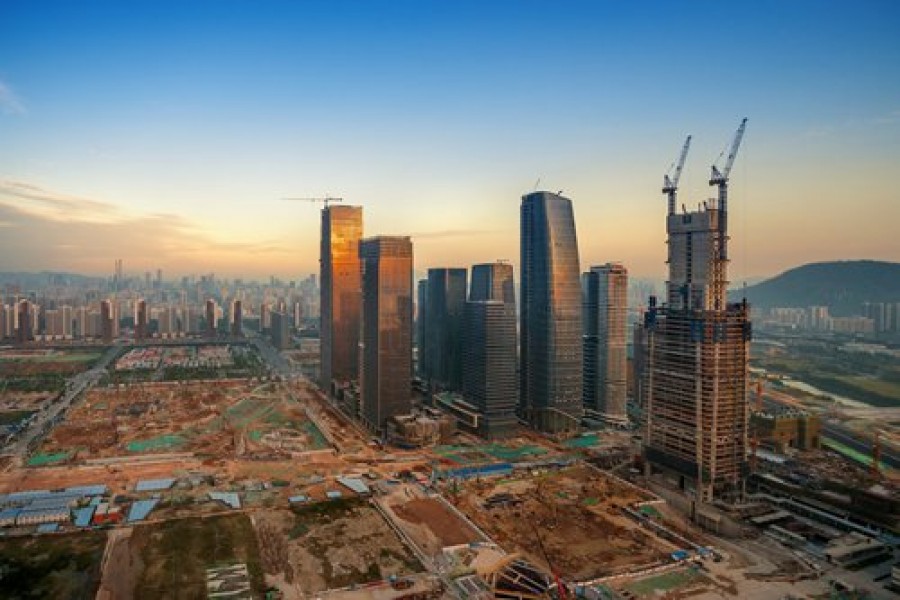China Sunday released a guideline to build Shenzhen as a pilot demonstration area for socialism with Chinese characteristics, a move analysts believe will upgrade the city to a better place compared with its neighbour Hong Kong, where radical protests of two months have cast a long shadow on its role as an international financial hub.
The official document "Guidelines on supporting Shenzhen in building a pilot demonstration area of socialism with Chinese characteristics" seeks to improve the strategic plan for the Guangdong-Hong Kong-Macao Greater Bay Area and enrich "one country, two systems" policy.
The guideline requested Shenzhen seize the opportunity of the Greater Bay Area and enhance its function as a "core engine."
Home to 71.16 million people, the Greater Bay Area had a total GDP of $1.6 trillion in 2018, the third-highest after the Tokyo bay area and New York metropolitan area, according to data published by the Hong Kong Trade Development Council.
The announcement, which came after radical protests had disrupted Hong Kong's public services and business operation for weeks, shows the central government has decided Shenzhen should be the "key driver" of the Greater Bay Area strategy, Tian Feilong, a Hong Kong affairs expert and associate professor at Beihang University in Beijing, told the Global Times.
"Hong Kong is not suitable to hold up the major role for the Greater Bay Area strategy, and the home court will be mainland cities," Tian said. Hong Kong's role in the strategy would not be replaced, Tian said, as the city will "remain an international financial hub."
The riots in Hong Kong have boosted Shenzhen's position in China's national strategy, noted Mei Xinyu, a Beijing-based current affairs commentator.
The new guideline does not mean the central government is paying more attention to the development of Shenzhen than to Hong Kong, said Angus Ng Hok Ming, executive president of Guangdong-Hong Kong-Macao Greater Bay Area Youth Association. "The move injects a strong impetus for the development of the area," Ng said.
"It was pleasant to see such strong policy support for Shenzhen," he noted, "when Hong Kong's governance faces difficulties and has limited energy to address economic issues and those related with people's life."
Hongkongers will have stronger sense of crisis and realize that they should not take the central government's supporting policies for granted, Ng said.
Shenzhen, a former fishing village near Hong Kong four decades ago when China started the reform and opening-up policy, surpassed Hong Kong in terms of GDP in 2018 to become the largest economy among cities in the Greater Bay Area.
Tian said if Hong Kong is still not ready to embrace opportunities to join the country's development but allow its prosperity and stability to be challenged, the city's development would be "very limited in the future while Shenzhen is running at a much faster speed."
The central government would think twice about offering Hong Kong a development chance in consideration of the region's handling of the extradition bill and the radical protests, said Tian.


